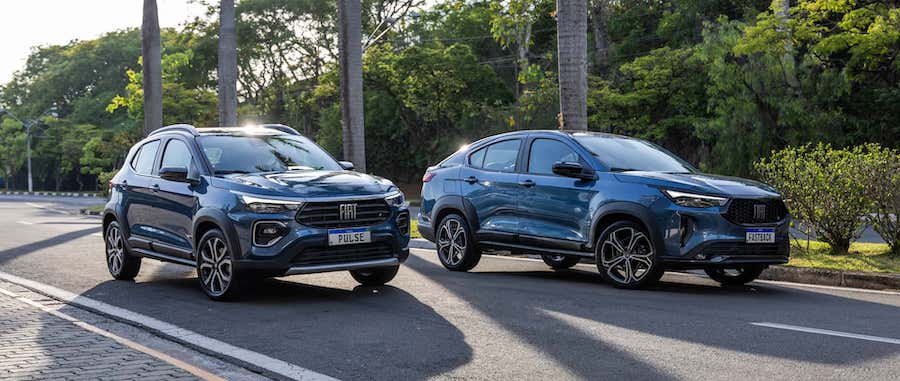Hybrids have a long history that goes back to 1901 with Ferdinand Porsche's Loehner-Porsche "Mixte." However, it wasn’t until the 1990s that the technology gained traction, fueled by the launch of the original Prius. Most hybrids have gas engines but some from Mercedes use diesels. Peugeot was the first to introduce a mass-produced diesel hybrid in 2012. After Kia's liquified petroleum gas (LPG) hybrid, here comes Fiat's ethanol hybrid in Brazil.
The Stellantis brand calls it a “bio-hybrid” technology that revolves around a turbocharged 1.0-liter engine. This three-cylinder mill runs on gasoline and ethanol while being supplemented by an electric motor. The combustion engine is good for 130 horsepower, which might not sound like much, but it’s enough for Fiat to claim the Fastback and Pulse are the most potent in their segment. The two SUVs with the T200 Hybrid powertrain have 148 pound-feet of torque.
Output is channeled to the front axle via a CVT that emulates seven gears. Fiat gives the Fastback and Pulse a pair of 12V batteries: a 68Ah lead-acid battery in the engine bay and an 11Ah lithium-ion battery underneath the driver’s seat. Both support a four-horsepower electric motor that replaces the usual alternator and starter components.
There’s even a regenerative mode that can capture as much as 25% of the energy that would otherwise be lost during deceleration. The harvested energy is then used to juice up both batteries. Fiat claims fuel consumption is down by 11.5% for the Fastback and by 10.7% for the Pulse compared to the non-electrified version of the ethanol-compatible engine.
Why ethanol? Because Brazil is the world’s second-largest producer. The country in South America is one of the world's largest producers of sugarcane, which is used to produce ethanol. It’s where Fiat launched the 147 small hatchback compatible with E100 way back in 1979. Last year, a whopping 83% of the cars sold there had a flex-fuel powertrain, according to the Brazilian Association of Automotive Vehicle Manufacturers (ANFAVEA).
While these two models have a mild-hybrid setup, Stellantis is planning full hybrids (with a dual-clutch automatic transmission) and plug-in hybrids with combustion engines that can run on ethanol. Rivals at General Motors and Honda have also recently disclosed plans to launch ethanol-capable hybrid vehicles in Brazil.

